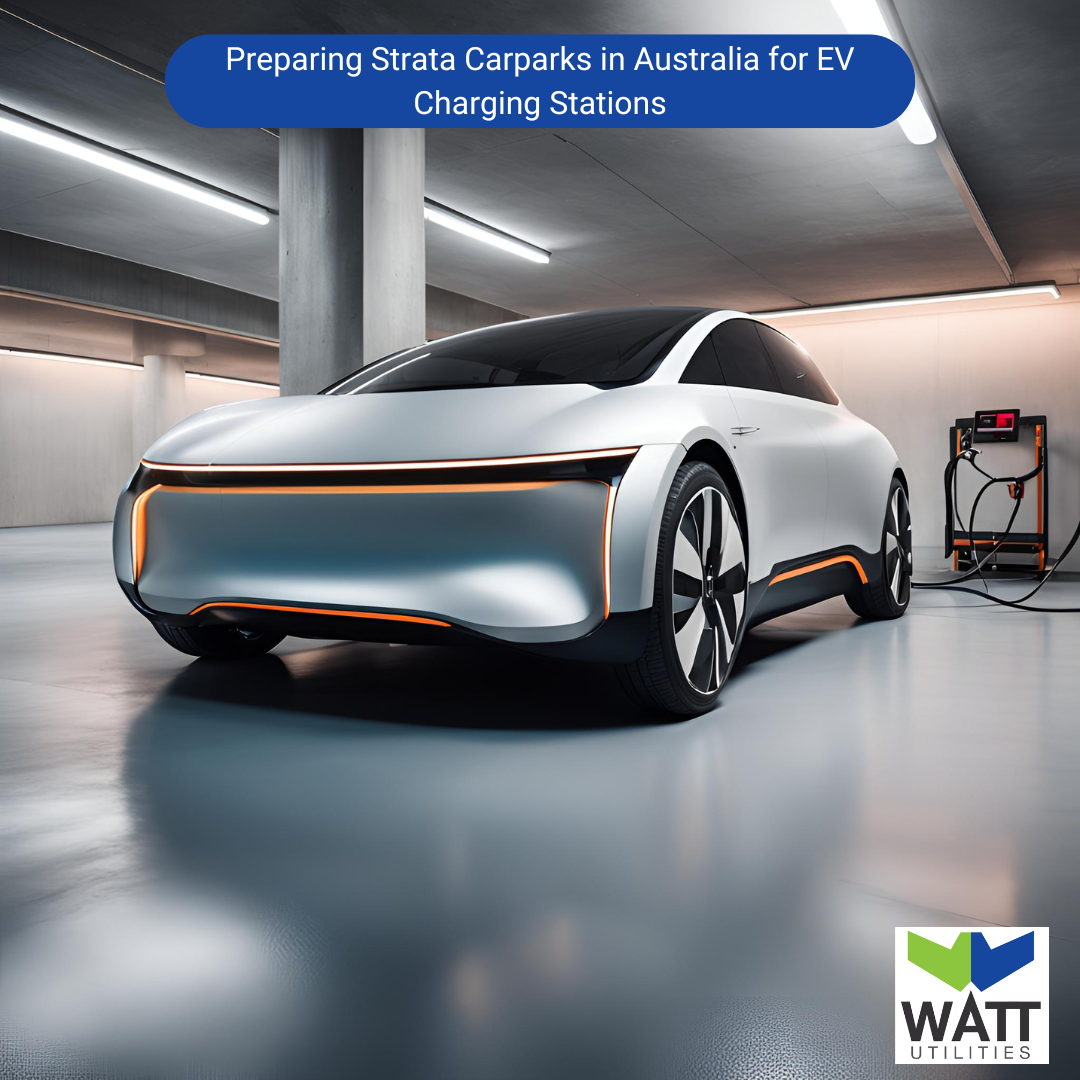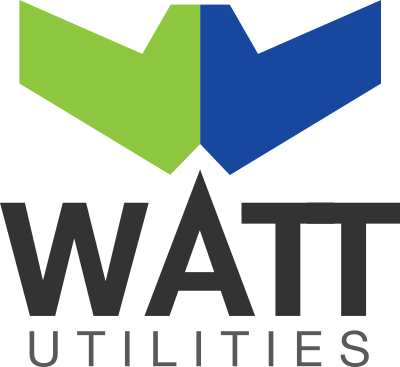
As electric vehicle (EV) ownership grows across Australia, the demand for accessible EV charging in strata (multi-unit residential) buildings is rising. Strata properties now face the challenge of accommodating this trend, which brings the potential to increase property value and enhance appeal. At Watt Utilities, we specialise in utility management and energy solutions for strata buildings, helping property owners and managers navigate these new demands with practical, forward-looking strategies.
In collaboration with EVSE Australia, this guide covers the key considerations for setting up EV charging in strata carparks, from assessing electrical capacity to implementing smart load management. For those exploring EV infrastructure for their properties, here’s what to know.
Australia has set ambitious targets for EV adoption, with states like New South Wales (NSW) offering grants to encourage EV infrastructure in strata apartments. As a result, updated building codes now require all new Class 2 buildings to include foundational EV charging provisions for every parking space. These efforts support the long-term goal of having sustainable, EV-friendly communities, making “EV Ready” strata buildings increasingly valuable.
Beyond meeting legal requirements, EV charging adds significant appeal to strata properties, attracting buyers and tenants who see it as a modern amenity. By investing in EV infrastructure, strata buildings not only future-proof themselves but also increase their overall marketability and property value.
Adding EV charging can place a significant load on a building’s electrical system. Conducting a 24/7 load analysis is essential to determine whether the main switchboard (MSB) and electrical infrastructure can handle the increased load. For buildings with limited capacity, installing a Load Management System (LMS) enables controlled power distribution, maximising charging availability without overloading the system.
Australian regulations require EV charging stations to comply with National Construction Code (NCC) safety guidelines, which include installing emergency stop buttons, signage, and ensuring chargers disconnect automatically in emergencies. These measures, along with resident and firefighter education, help strata buildings address fire safety concerns, which are comparable to those of internal combustion engine (ICE) vehicles when standards are followed.
In strata settings, EV infrastructure costs are generally shared:
The initial installation of circuit breakers, EV distribution boards, and shared cables is usually covered by the owners’ corporation.
Residents who install a personal charger in their parking bay generally cover the final setup costs, including the specific connection and charging unit.
NSW’s apartment grants can help strata communities with the initial setup, while funding models like incremental levies, retained earnings, or financing options may also ease costs. Clearly communicating these options to owners helps foster support for such initiatives.
An energy management system is essential for tracking usage and reimbursing costs, especially in shared EV charging setups. Platforms like EVSE’s Exploren software monitor each resident’s charging activity and automatically reimburse the owners’ corporation, simplifying the billing process and ensuring transparency.
Retrofitting strata properties for EV charging may present obstacles, but these solutions can help:
For older buildings, power limitations are common. Implementing a load management system allows the building to safely support multiple EV chargers without overloading the MSB. Watt Utilities provides support for assessing and managing utility loads to ensure compliance and efficiency.
For shared charging, tracking individual usage is essential. Exploren software offers real-time monitoring, simplifying monthly billing for strata managers and preventing disputes.
As technology evolves, strata buildings will benefit from new, flexible charging options:
Portable EV chargers, which can be easily deployed, offer a flexible solution for buildings not yet ready for permanent installations, allowing gradual adaptation to resident needs.
Enhanced load management technologies, now capable of balancing power across entire building systems, will enable more efficient EV charging without straining infrastructure.
Starting the journey to make a strata building “EV Ready” requires planning, technical guidance, and open communication with residents. Here’s how to get started:
Reach out to EV infrastructure experts like EVSE Australia and utility management providers such as Watt Utilities, who can assist with everything from power assessments to ongoing management.
Conducting a 24/7 load analysis is a must for understanding a building’s power capabilities. Watt Utilities can assist with determining the building’s electrical load and planning energy solutions that align with current standards.
Use surveys to gauge interest, understand ownership patterns, and provide education on the benefits and costs of EV readiness.
Plan infrastructure that meets immediate needs but is scalable for future demand. Starting with a load management system and central infrastructure will make adding chargers easier as EV adoption grows.
As more Australians make the switch to electric vehicles, strata properties that offer EV charging stand to benefit significantly. EV-ready infrastructure is increasingly seen as essential, both by residents and regulatory bodies. At Watt Utilities, we’re here to support strata managers in navigating this shift with practical energy solutions and expert guidance. For more information on making your property EV-ready, visit Watt Utilities or connect with EVSE Australia for EV charging expertise.



Fields marked with * are required.